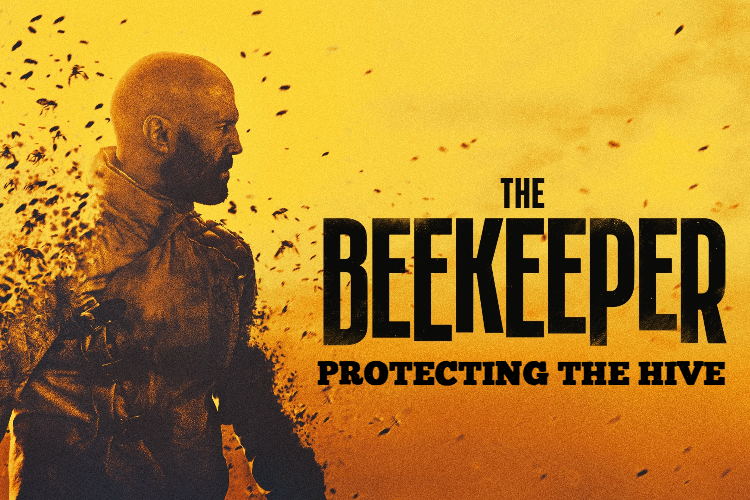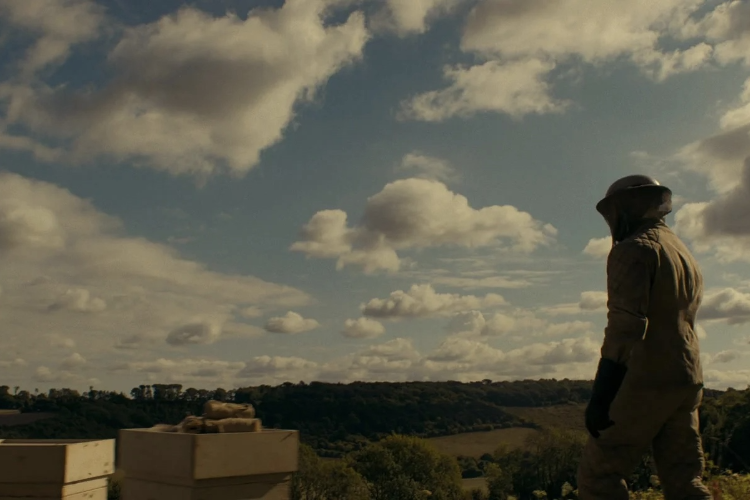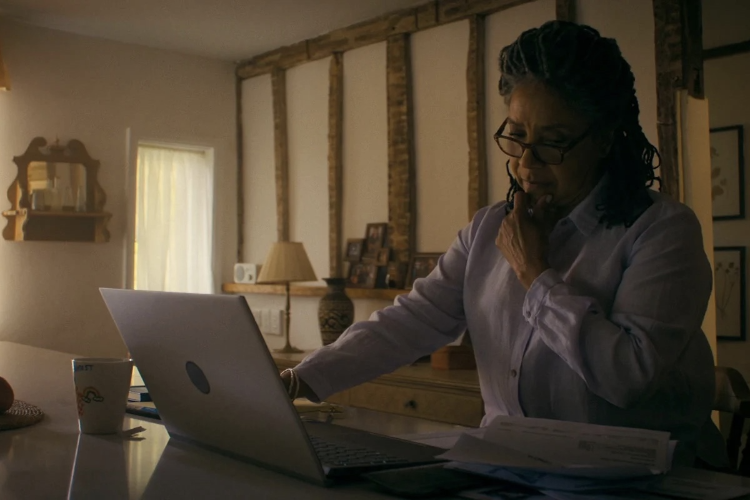
THE BEEKEEPER: PROTECTING THE HIVE
In Exploring Grit and Justice, we discussed The Beekeeper as one of three films that succeeded in delivering adrenaline-fueled entertainment while posing deeper questions about justice, redemption, and the human spirit. These films remind us that even in the darkest corners of society, individuals are willing to fight for what is right, no matter the cost.
Jason Statham’s film, The Beekeeper (2024), delivers more than just the high-octane action his fans expect. Directed by David Ayer, the movie is a gripping tale of sacrifice, duty, and moral dilemmas set against a backdrop of innovation and vulnerability. Beneath its thrilling exterior lies a profound commentary on the challenges faced by the elderly in an increasingly digitized world.
Many consider it just another Jason Statham film, but to me, it’s much more. Its portrayal of the vulnerability of the elderly online and the emotional toll this takes hits home. The first 15 minutes of the film should be part of any cybersecurity awareness program.
THE HIVE AND ITS PROTECTOR
In The Beekeeper, Statham plays Adam Clay, a former operative turned vigilante, known only as “The Beekeeper.” He is driven by an unyielding commitment to protecting the “hive”, a metaphor for his community and, by extension, society. The film’s central conflict revolves around the concept of sacrificing a few for the greater good, a moral dilemma embodied in both the plot and its symbolic parallels to beekeeping.

If Adam were anyone else, he might have struggled with difficult choices, raising the question of whether the ends truly justify the means. However, his character is resolute and doesn’t hesitate to eliminate threats, which is deeply satisfying to watch. In reality, scammers often negotiate deals in court to minimize their sentences or simply relocate to continue preying on others.
Another noteworthy aspect is the portrayal of scammers. They weren’t the popular Russian, North Korean, African, Indian, or Chinese scammers, as often mentioned in the news. This challenges the audience to recognize that scammers can come from any background and any country.

THE SYMBOLISM OF BEES
The film’s use of the hive and the nature of bees as central metaphors is particularly compelling. Bees play an essential role in maintaining balance within ecosystems. Their production of honey serves as a reminder of their value beyond pollination, a natural product beneficial for both consumption and external use.
The parallels between the hive’s ecosystem and human society are striking, highlighting themes of unity, interdependence, and the consequences of disruptions within the system. These symbolic layers enrich the narrative, inviting viewers to reflect on the intricate connections between nature and society.
SACRIFICE FOR JUCTICE
The film explores the harsh reality of sacrificing a few for the survival of many. One of the many bee-related narratives is when the hive faces contamination due to the queen’s defective offspring. This mirrors the movie’s main antagonist: the son of a female president, whose unchecked desire for power and malice threatens societal harmony.
Adam takes it upon himself to eliminate a threat that hits close to home. Adam’s journey to neutralize this threat inevitably causes collateral damage. This theme resonates, challenging viewers to consider the complexities of justice and moral responsibility in a fractured world.
A TIMELY MESSAGE ON VULNERABILITY
Beyond its action-packed surface, The Beekeeper shines a spotlight on an often-overlooked issue: the risks the elderly face in the era of rapid innovation. In the film, a series of online scams targeting senior citizens becomes the catalyst for Adam’s actions. This underscores the vulnerability of those often left behind or unable to keep up in a digital age that prioritizes speed and convenience over inclusivity and security.
With technology advancing at a breakneck pace, many elderly individuals find themselves navigating uncharted waters, making them easy targets for cybercriminals and scammers. The Beekeeper emphasizes the need for greater societal vigilance and support for those most at risk, urging viewers to reflect on the real-world implications of neglecting this demographic.

A VILLAIN ROOTED IN HUBRIS
The female president’s son, played by Josh Hutcherson, serves as the primary antagonist and embodies unchecked privilege and hubris. His actions endanger the hive’s integrity and highlight the dangers of power without accountability. His family’s business developed sophisticated software that is used by the intelligence community to identify financial fraud. He builds a company using the same software to hunt for money from vulnerable people online. His character serves as a foil to Adam, whose selflessness and commitment to justice stand in stark contrast.
The narrative evokes parallels to real-life situations where power and privilege protect wrongdoers. It brings to mind cases like Hunter Biden’s pardon by his father, U.S. President Joe Biden. Biden pardoned his son for offenses committed between January 1, 2014, and December 1, 2024. The curious thing is that there seems to be still much to uncover about his actions during that period, and the pardon seems too convenient. This action raises questions about accountability and justice.
WHY THE BEEKEEPER MATTERS
The Beekeeper is more than just another over-the-top action film; it is a call to action. The movie addresses themes of sacrifice, societal protection, and the vulnerability of the elderly, challenging audiences to rethink their responsibilities in an ever-changing world. Hopefully, it will inspire others to share more stories and inspire change that ensures even the most privileged wrongdoers face consequences for their actions. Criminals should be afraid of committing crimes not emboldened and encouraged by the system to commit them, as is the case in the U.S. (L.A, New York), and the U.K..
In an era where the elderly are often marginalized, The Beekeeper reminds us of the importance of community and the need to protect those most vulnerable. In my opinion, it is a film that not only entertains but also motivates viewers to confront uncomfortable truths such as a defective justice system and what can be done to restore the notion that everyone should be treated equally regardless of their position and class.
All images in this publication belong to the original creators and are used as references under fair use.
My notes are all set. Let me know what you think.
See you on the next page!



